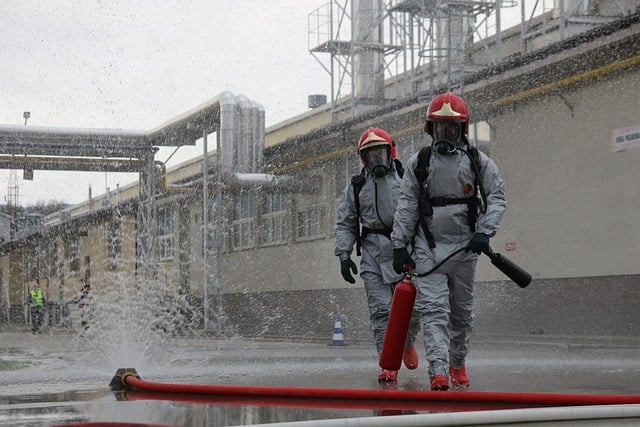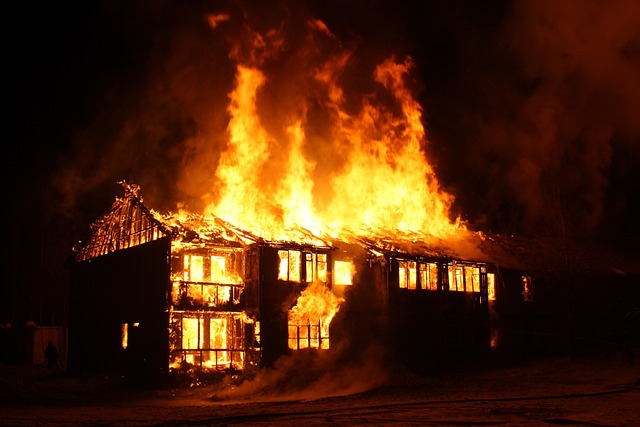In Texas, particularly when selling a fire-damaged home in Houston, strict property disclosure laws aim to ensure transparency. Sellers must disclose known defects and material facts related to fire damage, including structural or non-structural issues. Buyers have the right to conduct inspections and obtain professional assessments, while sellers risk legal consequences for non-compliance. Understanding these regulations is crucial for both parties to navigate the competitive Houston real estate market and facilitate informed decisions regarding fire-affected properties.
Texas property disclosure laws play a crucial role when considering the sale of a fire-damaged house, especially in bustling cities like Houston. Understanding these regulations is essential for both sellers and buyers to navigate the legal requirements effectively. This article delves into the intricacies of Texas property disclosure, offering insights on what constitutes fire damage, seller duties, buyer protections, and common exclusions. If you’re contemplating selling a fire-damaged home in Houston, this guide will provide valuable information.
- Understanding Texas Property Disclosure Laws
- What Is a Fire-Damaged House Consideration?
- Legal Requirements for Selling a Damaged Property
- The Seller's Duty to Reveal Defects
- Buyer Protections and Rights in Houston
- Common Exclusions and Exceptions
Understanding Texas Property Disclosure Laws

In Texas, property disclosure laws play a crucial role in ensuring transparency during real estate transactions. When it comes to selling a fire-damaged house in Houston, understanding these regulations is essential for both sellers and buyers. These laws require sellers to disclose any known defects or material facts about the property that could affect its value or safety.
For instance, if a home has sustained fire damage, the seller must reveal this information to potential buyers. This includes detailing the extent of the damage, any structural issues, or concerns regarding the building’s integrity. By disclosing these factors, buyers can make informed decisions and conduct thorough inspections before purchasing the property, especially in the Houston market where real estate transactions are common.
What Is a Fire-Damaged House Consideration?

When considering whether to sell a fire-damaged house in Houston, it’s essential to understand what constitutes a fire-damaged property under Texas laws. A fire-damaged house refers to any real estate where a fire has occurred and caused significant structural or non-structural damage. This includes situations where the home has been partially or fully destroyed, leading to extensive repairs or even a complete rebuild. The scope of damage can vary from charred walls and melted flooring to compromised load-bearing structures and hazardous debris removal needs.
In Houston, as in many parts of Texas, selling a fire-damaged property is governed by specific disclosure laws. Homeowners must disclose any known issues related to fires, including the extent of damage, previous restoration efforts, and potential lingering hazards. Buyers have the right to conduct inspections and obtain professional assessments to determine the feasibility and cost of repairs. This transparency ensures that both parties are informed about the current state of the property, facilitating a mutually agreeable sale or helping buyers make an informed decision if they choose not to proceed with the purchase.
Legal Requirements for Selling a Damaged Property

In Texas, selling a property damaged by a fire or any other disaster comes with specific legal considerations. The state’s disclosure laws mandate that potential buyers be informed about any significant issues affecting a property. When it comes to fire-damaged homes in Houston, sellers must disclose details about the extent of the damage and any repairs carried out, including structural integrity concerns, water damage, and smoke odor removal. Failure to do so may result in legal repercussions and even financial penalties.
The legal requirements for selling a damaged property ensure transparency between buyers and sellers. In cases where a house has undergone significant repairs after a fire, it’s crucial to provide comprehensive information on the renovation process. This includes any building code violations or non-compliance issues that have been addressed. Buyers should be aware of potential hidden costs associated with repairing a fire-damaged property in Houston, as some structural damages might not be immediately apparent.
The Seller's Duty to Reveal Defects

In Texas, sellers have a legal obligation to disclose any known defects or issues with their property that could impact a buyer’s decision. This duty extends to significant problems like fire damage, which can significantly affect the structure and safety of a home. If a house in Houston has experienced fire damage, the seller must inform potential buyers about the extent of the damage and any necessary repairs. Withhold this information could lead to legal repercussions and even void the sale.
Fire-damaged properties require specific disclosures as sellers are accountable for providing accurate and transparent details. Buyers should be aware of any historical issues that might impact their investment, especially in a bustling real estate market like Houston. Therefore, when considering if you can sell a fire-damaged house in Houston, it’s crucial to ensure all relevant information is shared openly to foster trust and transparency between the parties involved.
Buyer Protections and Rights in Houston

In Houston, buyer protections and rights are crucial aspects of property transactions, especially when it comes to fire-damaged homes. If you’re considering purchasing a fire-damaged house in Houston, it’s essential to know that Texas law requires sellers to disclose any material defects or known issues with the property. This includes structural damage, water damage, mold, and yes, even fire damage. Sellers must provide a Property Disclosure Form, outlining these issues, to buyers before the sale can proceed.
Buyers have the right to inspect the property and conduct their due diligence. If significant fire damage is present and not disclosed, buyers may have legal recourse. They could pursue damages or even terminate the contract if the seller intentionally withheld information about extensive fire damage that would negatively impact the home’s value or habitability. Thus, transparency and accurate disclosure are key to ensuring a smooth transaction in the Houston real estate market.
Common Exclusions and Exceptions

When it comes to Texas property disclosure laws, there are certain exclusions and exceptions that buyers and sellers should be aware of, especially in cases like a fire-damaged house in Houston. These laws generally require sellers to disclose any known material defects or issues with the property to potential buyers. However, there are some common exclusions.
For instance, minor cosmetic issues or ordinary wear and tear are typically not required to be disclosed. This includes things like paint peeling or carpet stains. Additionally, certain types of damage may be excluded if they were caused by events beyond the seller’s control, such as natural disasters (except for flood damage in areas with a known history of flooding). In the case of a fire-damaged house, if the damage was properly repaired according to local building codes and regulations, it might not need to be disclosed, assuming it doesn’t impact the structural integrity or safety of the property. However, buyers should always have the right to inspect the property and seek professional assessments in cases of significant damage or uncertainty.
Texas property disclosure laws play a crucial role in ensuring transparency during real estate transactions, especially when dealing with fire-damaged properties. As outlined in this article, understanding these laws is essential for both sellers and buyers in Houston. If you’re considering selling a fire-damaged house, adhering to legal requirements and revealing defects can protect your rights and facilitate a smooth sale. For buyers, being aware of their protections ensures they make informed decisions and avoid potential pitfalls when purchasing such properties.






